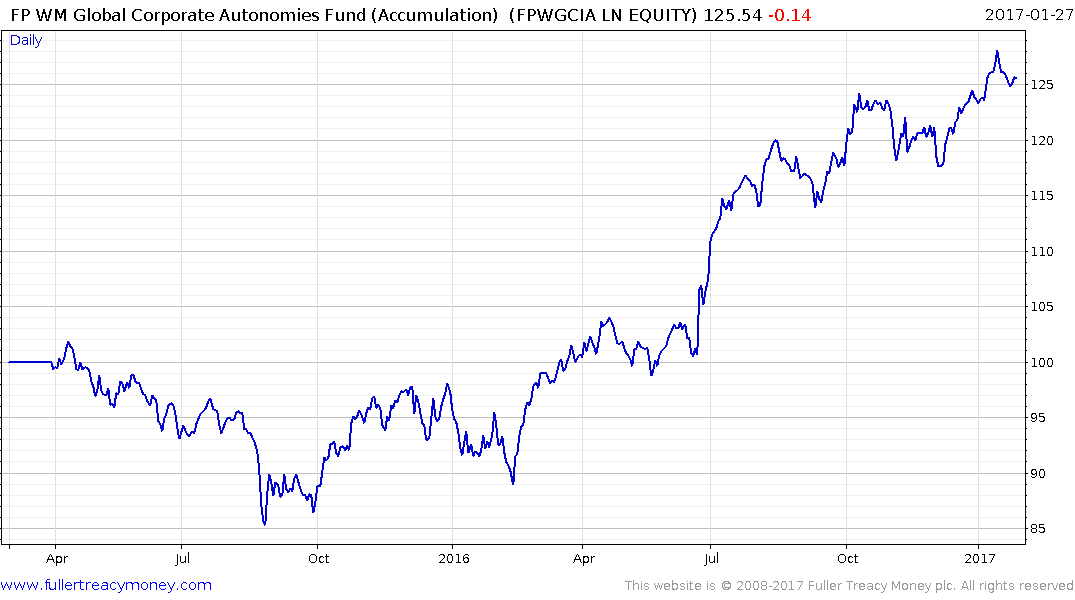The retreat of the global company
Thanks to a subscriber for this article from the Economist which may be of interest to subscribers. Here is a section:
It looks as if, in the future, the global business scene will have three elements. A smaller top tier of multinational firms will burrow deeper into the economies of their hosts, helping to assuage nationalistic concerns. General Electric is localising its production, supply chains and management. Emerson, a conglomerate that has over 100 factories outside America, sources about 80% of its production in the region where it is sold. Some foreign firms will invest more deeply in American-based production in order to avoid tariffs, if Mr Trump imposes them, much as Japanese car firms did in the 1980s. This is doable if you are large. Siemens, a German industrial giant, employs 50,000 in America and has 60 factories there. But midsized industrial firms will struggle to muster the resources to invest more deeply in all their markets.
Politicians will increasingly insist that companies buying foreign firms promise to preserve their national character, including jobs, R&D activity and tax payments. SoftBank, a Japanese firm that bought ARM, a British chip company, in 2016, agreed to such commitments. So has Sinochem, a Chinese chemicals firm that is buying Syngenta, a Swiss rival. The boom in foreign takeovers by Chinese firms, meanwhile, may fizzle out or explode. Many such deals, reliant on subsidised loans from state banks, probably make little financial sense.
The second element will be a brittle layer of global digital and intellectual-property multinationals: technology firms, such as Google and Netflix; drugs companies; and companies that use franchising deals with local firms as a cheap way to maintain a global footprint and the market advantage that brings. The hotel industry, with its large branding firms such as Hilton and Intercontinental, is a prime example of the tactic. McDonald’s is shifting to a franchising model in Asia. These intangible multinationals will grow fast. But because they create few direct jobs, often involve oligopolies and do not benefit from the protection of global trade rules, which for the most part only look after physical goods, they will be vulnerable to nationalist backlashes.
Since I wrote a book championing the big global companies, which dominate their respective niches, we refer to as Autonomies and co-manage a fund devoted to investing in them I think it is safe to say I have a bias in commenting on this story. Nevertheless, it raises some important questions.

Big global companies do well when the global economy is expanding so a transition from synchronized global monetary stimulus to synchronized global fiscal stimulus is a positive potential development which is already being reflected in stock prices. In addition, the potential for lower US corporate taxes is an important consideration since it is still the world’s largest economy by a long shot.
Against that tailwind, the threats of greater protectionism, near shoring and nationalism need to considered. Protectionism and championing of local brands is a threat which is likely to have widely differing effects on companies depending on their focus. The threat to incumbents from upstart piecemeal technology companies is an additional consideration with new small detergent, cosmetics and even mattress companies all seeking to cut into the margins of large corporations in different parts of their supply chains.
Competition is only increasing and that is most particularly true of software companies where the cost of innovation is lowest and margins highest. However large companies also tend to have well known trusted brands and that gives them a powerful advantage when seeking to fend off competition. Success as ever will depend on rising to the challenge.
Rather than the end of the global company I think it would be more accurate to conclude that the Autonomies will not be immune from challenges in the future and that the list of companies we regard as best fitting the moniker is not set in stone because there will inevitably be winners, losers and new additions.
Back to top

